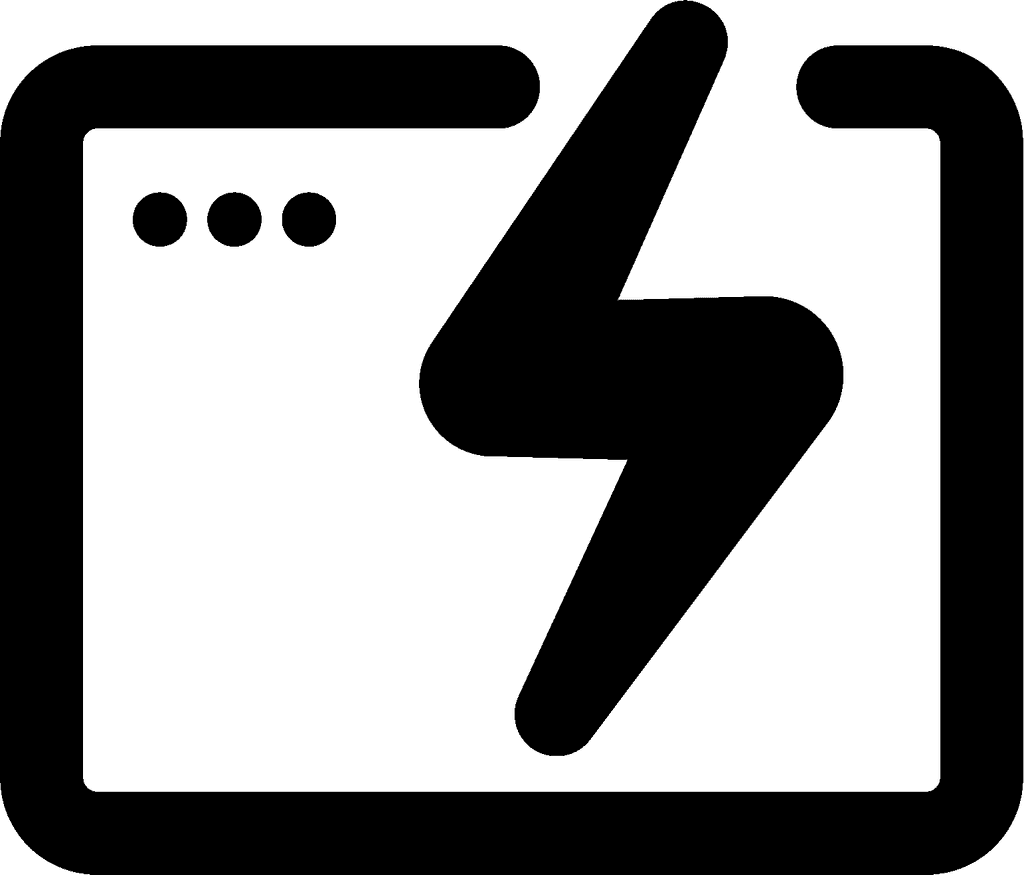AI Tools for Business: Boosting Efficiency and Innovation
AI tools are revolutionizing how businesses operate in 2024. These advanced technologies leverage artificial intelligence to enhance productivity and streamline processes across industries. Companies that adopt AI tools can gain significant competitive advantages through improved efficiency and data-driven decision making.
From chatbots that provide 24/7 customer support to predictive analytics that forecast market trends, AI is transforming key business functions. Machine learning algorithms can automate repetitive tasks, freeing up employees to focus on higher-value work. Natural language processing enables more natural interactions between humans and machines.
As AI capabilities continue to expand, businesses have more options than ever to incorporate these powerful tools. Whether for marketing, operations, finance, or human resources, AI solutions exist to optimize nearly every aspect of an organization. The impact on productivity and bottom-line results can be substantial for companies that strategically implement AI.

Understanding AI in the Business Context
Artificial intelligence is transforming how companies operate, analyze data, and make decisions. AI technologies like machine learning and natural language processing enable businesses to gain insights and automate processes in powerful new ways.
The Role of Machine Learning and Natural Language Processing
Machine learning allows systems to improve performance on tasks through experience. It powers recommendation engines, fraud detection, and predictive maintenance in businesses. Natural language processing enables machines to understand and generate human language.
NLP drives chatbots, voice assistants, and text analysis tools. These AI technologies help companies automate customer service, analyze feedback, and extract insights from unstructured data. Machine learning models can detect patterns in large datasets to make predictions and guide decision-making.
AI's Influence on Data Analysis and Predictions
AI dramatically enhances data analysis capabilities for businesses. Machine learning algorithms can rapidly process massive datasets to uncover trends and correlations. This allows for more accurate forecasting and predictive analytics.
AI-powered tools generate real-time insights to guide business strategy. They can predict customer churn, optimize pricing, and forecast demand. Natural language processing extracts meaning from text data like reviews and social media posts.
These capabilities give businesses a more complete view of operations and market conditions. AI augments human analysts to derive actionable intelligence from complex data.
Ethical Considerations and Limitations of AI
While AI offers powerful benefits, it also raises ethical concerns. Algorithmic bias can lead to unfair or discriminatory outcomes. Data privacy and security are major considerations when deploying AI systems.
There are also limitations to AI's capabilities. Most AI is narrow, excelling at specific tasks but lacking general intelligence. AI systems can make mistakes or produce unexpected results, especially with incomplete data.
Businesses must carefully consider these factors when implementing AI. Responsible AI practices involve transparency, fairness, and human oversight. Understanding AI's strengths and weaknesses is crucial for effective and ethical deployment.
AI Tools for Enhanced Communication and Collaboration
AI-powered tools are revolutionizing how businesses communicate and collaborate. These innovations streamline workflows, improve efficiency, and enable seamless interactions across teams and with customers.
Chatbots and AI Writing Assistants
Chatbots have become essential for quick, efficient customer interactions. They handle routine inquiries, freeing up human agents for complex issues. Advanced chatbots use natural language processing to understand context and provide personalized responses.
AI writing assistants like Jasper help teams create content faster. These tools generate drafts, suggest improvements, and ensure consistent brand voice across communications. They're particularly useful for marketing teams and content creators.
Notion AI integrates directly into the popular workspace tool, offering smart suggestions and automating repetitive tasks. This AI assistant helps with brainstorming, summarizing meetings, and drafting documents.
Virtual Meetings and Project Management Integrations
AI enhances virtual meetings through tools like Zoom's Smart Gallery and real-time transcription. These features improve engagement and accessibility for remote teams.
ClickUp AI brings automation to project management. It can generate task descriptions, estimate completion times, and suggest project timelines based on team capacity and historical data.
Slack's AI features include smart replies and channel suggestions, streamlining team communication. The platform's integrations with other AI tools create a centralized hub for collaboration.
Automating Customer Service and Engagement
AI-powered customer service tools handle multiple channels simultaneously. They can route inquiries, provide instant responses, and escalate complex issues to human agents when necessary.
Sentiment analysis helps businesses understand customer emotions in real-time. This allows for quick interventions in potentially negative situations and the ability to capitalize on positive feedback.
Automated email campaigns use AI to personalize content and timing for each recipient. This leads to higher engagement rates and more effective communication with customers and prospects.
AI-Driven Marketing and Content Creation
AI tools are transforming marketing and content creation, enabling businesses to streamline processes and enhance outputs. These technologies offer powerful solutions for SEO, social media management, and video production.
Search Engine Optimization and Copywriting
AI-powered SEO tools analyze search trends and competitor strategies to optimize content for better rankings. These systems can generate keyword-rich copy that aligns with Google's algorithms while maintaining readability. Some AI copywriting tools produce entire blog posts or product descriptions based on brief inputs.
Natural language processing allows AI to understand user intent, helping businesses create more targeted content. AI can also identify content gaps and suggest topics that are likely to perform well in search results.
Machine learning algorithms continuously refine SEO strategies based on performance data, ensuring content remains optimized as search engine algorithms evolve.
Social Media Management and Caption Generation
AI simplifies social media management by automating post scheduling and analyzing engagement metrics. These tools can determine the best times to post for maximum reach and engagement across different platforms.
Caption generation AI creates compelling, platform-specific captions that resonate with target audiences. Some systems can even tailor language and tone to match brand voice guidelines.
AI-driven sentiment analysis helps businesses monitor brand perception and respond quickly to customer feedback. These tools can also identify trending topics and hashtags relevant to a company's industry.
Video Creation and Editing Tools
AI video editing software like Descript and Hitpaw simplifies the production process. These tools can automatically remove filler words, generate captions, and even create realistic voiceovers from text.
Platforms like Pictory and Lumen5 use AI to transform written content into engaging video presentations. They can select relevant stock footage, add text overlays, and synchronize visuals with narration.
AI-powered tools assist in color grading, audio enhancement, and special effects application. Some advanced systems can even generate entire video scenes based on text prompts, using technology similar to Dall-E 2 and Midjourney.
Productivity and Workflow Automation with AI
AI tools are transforming how businesses operate, boosting efficiency and streamlining processes across organizations. These innovations tackle common challenges in workflow management, documentation, and time allocation.
Streamlining Business Processes and Workflows
AI-powered automation tools like Zapier integrate various applications, eliminating manual data entry and repetitive tasks. These platforms create seamless workflows between different software, saving time and reducing errors.
ClickUp leverages AI to optimize project management. It automates task assignments, tracks progress, and generates insightful reports. This centralized approach enhances team collaboration and keeps projects on schedule.
AI algorithms analyze workflow patterns to identify bottlenecks and suggest improvements. This data-driven optimization leads to more efficient processes and resource allocation.
Enhancing Note-Taking and Documentation
Mem uses AI to revolutionize note-taking and knowledge management. It automatically organizes and connects information, making it easier to find and utilize later.
Notion AI assists in document creation and editing. It generates content outlines, summarizes long texts, and even drafts entire sections based on user prompts.
Grammarly employs AI to improve writing quality. It checks grammar, enhances clarity, and suggests style improvements in real-time across various platforms.
Task Scheduling and Time Management
AI tools analyze work patterns and personal preferences to create optimized schedules. They factor in deadlines, meeting times, and individual productivity peaks.
Smart calendars use AI to automatically schedule meetings, finding ideal times for all participants. They consider factors like time zones and personal availability.
Time-tracking software with AI capabilities provides insights into how time is spent. It identifies time-wasting activities and suggests ways to improve focus and productivity.
Artificial Intelligence in Creative Domains
AI is revolutionizing creative fields, enabling new forms of expression and streamlining production processes. From generating images to composing music, AI tools are empowering businesses to create unique content and designs efficiently.
Generative AI for Image and Video Generation
Generative AI has transformed image and video creation. Tools like Midjourney, DALL-E 2, and Stable Diffusion produce high-quality visuals from text descriptions. These platforms enable businesses to quickly generate custom imagery for marketing campaigns, product concepts, and presentations.
Runway offers AI-powered video editing and creation capabilities. It allows users to manipulate existing footage or generate new video content using natural language prompts. This technology streamlines video production processes and opens up new creative possibilities.
AI image generation tools are particularly useful for businesses that need a constant stream of visual content. They can rapidly produce illustrations, product mockups, and social media graphics without the need for extensive design skills or resources.
AI in Music, Art, and Branding
AI is making significant strides in music composition, art creation, and branding. AI algorithms can analyze musical patterns and generate original compositions in various styles. This technology assists musicians and producers in creating background tracks, jingles, and even full songs.
In the visual arts, AI tools can create unique artworks based on specific parameters or styles. These systems learn from vast datasets of existing art to produce new pieces that can inspire human artists or serve as standalone creations.
Branding benefits from AI through tools like Looka, which generates logo designs and brand identities. These platforms use machine learning to understand design principles and create cohesive visual elements that align with a company's values and target audience.
AI-Powered Design and Template Tools
AI is enhancing graphic design processes through intelligent template tools and automated layout systems. These platforms analyze design principles and user preferences to suggest optimal layouts, color schemes, and typography choices.
Design software now incorporates AI to automate tedious tasks like image cropping, background removal, and color correction. This allows designers to focus on higher-level creative decisions while improving overall productivity.
AI-powered tools also offer personalized design recommendations based on user behavior and industry trends. This helps businesses create visually appealing materials that resonate with their target audience, even without extensive design expertise.
Frequently Asked Questions
AI tools are rapidly transforming business operations across industries. These technologies offer innovative solutions for various business needs and challenges.
What are the top AI tools currently used in business development?
Popular AI tools for business development include CRM platforms like Salesforce Einstein and HubSpot, which use AI for lead scoring and customer insights. Conversation intelligence tools such as Gong and Chorus.ai help analyze sales calls.
AI-powered market research platforms like Crayon and Kompyte provide competitive intelligence. These tools assist businesses in identifying opportunities and optimizing their sales strategies.
How can businesses effectively integrate AI into their daily operations?
Businesses can start by identifying specific processes that could benefit from AI automation. This might include customer service chatbots or AI-powered data analysis tools.
Employee training is crucial for successful AI integration. Companies should provide resources and support to help staff adapt to new AI-driven workflows.
Regularly evaluating AI tool performance and adjusting implementation strategies ensures optimal results. This approach helps businesses maximize the benefits of AI in their operations.
Which AI tools offer the best features for business analysts at no cost?
Google Data Studio provides free data visualization and reporting capabilities. It integrates with various data sources, making it valuable for business analysts.
Orange is an open-source data mining and machine learning tool. It offers a user-friendly interface for data analysis and predictive modeling.
RapidMiner offers a free version with basic data preparation and machine learning features. These tools enable analysts to perform complex data tasks without cost barriers.
What are the benefits of using AI in business and how can they be measured?
AI can significantly improve efficiency by automating repetitive tasks. This benefit can be measured through time saved and increased productivity metrics.
Enhanced decision-making is another key advantage. Businesses can track the accuracy and speed of AI-assisted decisions compared to traditional methods.
Improved customer experiences often result from AI implementations. Customer satisfaction scores and retention rates can quantify this benefit.
In what ways can AI tools help students prepare for business careers?
AI-powered learning platforms like Coursera and edX offer personalized course recommendations and adaptive learning experiences. These tools help students acquire relevant business skills efficiently.
Resume builders and job matching platforms use AI to help students optimize their applications. This assistance improves their chances of landing desirable positions in the business world.
AI writing assistants like Grammarly aid students in developing professional communication skills. These tools enhance their ability to create polished business documents.
How can small businesses leverage free AI tools to compete with larger companies?
Small businesses can use free AI-powered social media management tools like Hootsuite to improve their online presence. These platforms help create targeted content and analyze engagement metrics.
AI-driven email marketing tools such as Mailchimp's free tier enable small businesses to create personalized campaigns. This capability helps them reach customers more effectively.
Free AI translation services like Google Translate can help small businesses expand into international markets. These tools facilitate communication with global customers and partners.

Build a more powerful help desk with Risotto
Minimize Tickets and Maximize Efficiency
Simplify IAM and Strengthen Security
Transform Slack into a help desk for every department
Schedule your free demo



